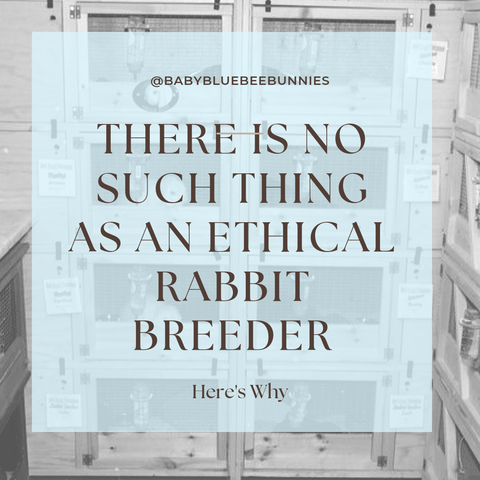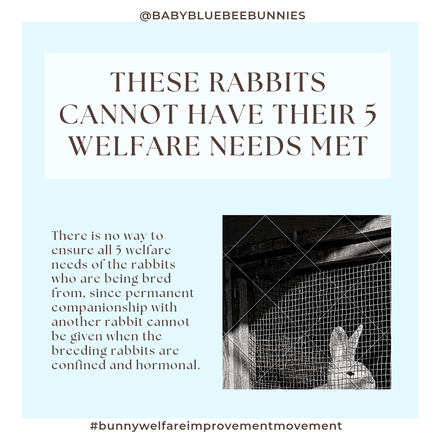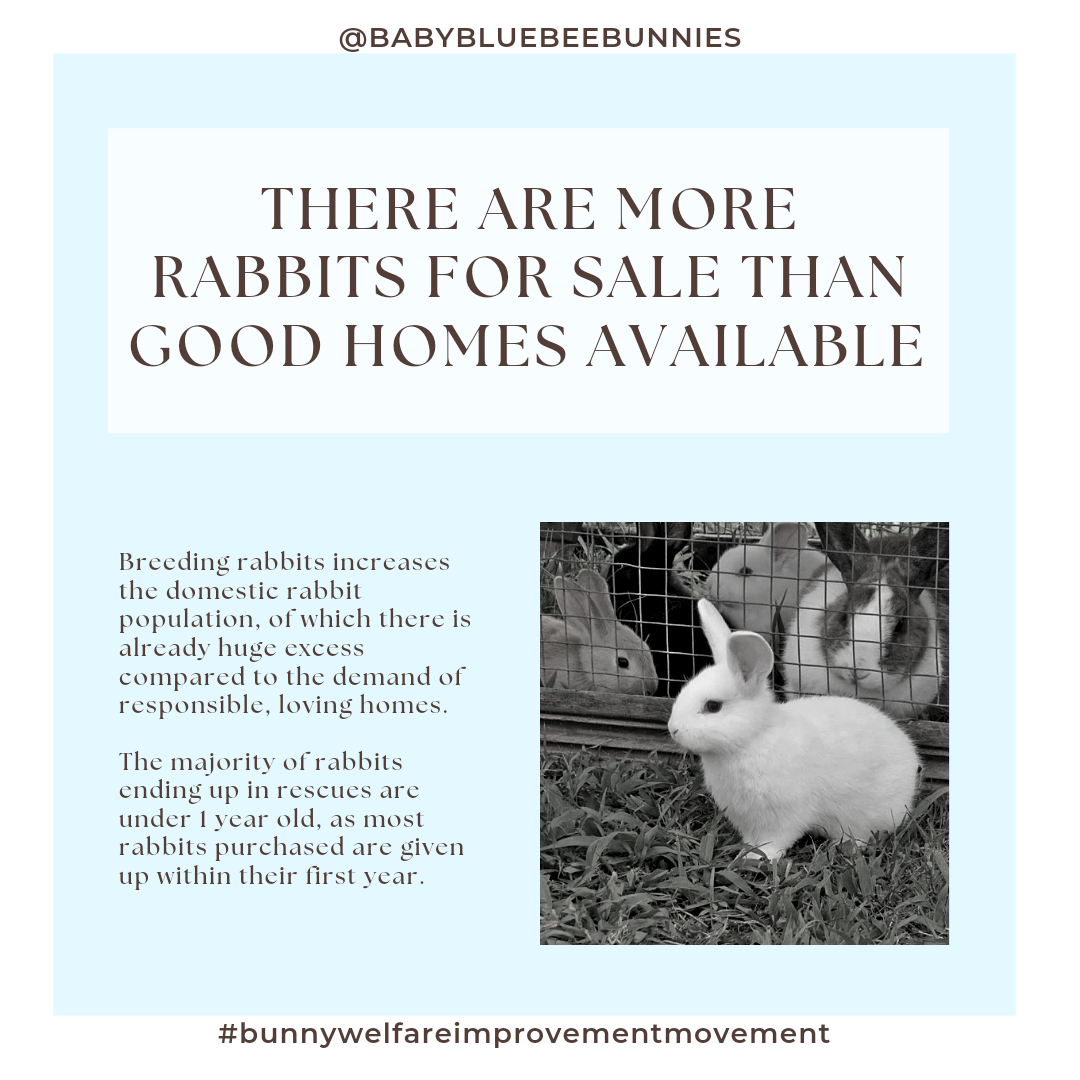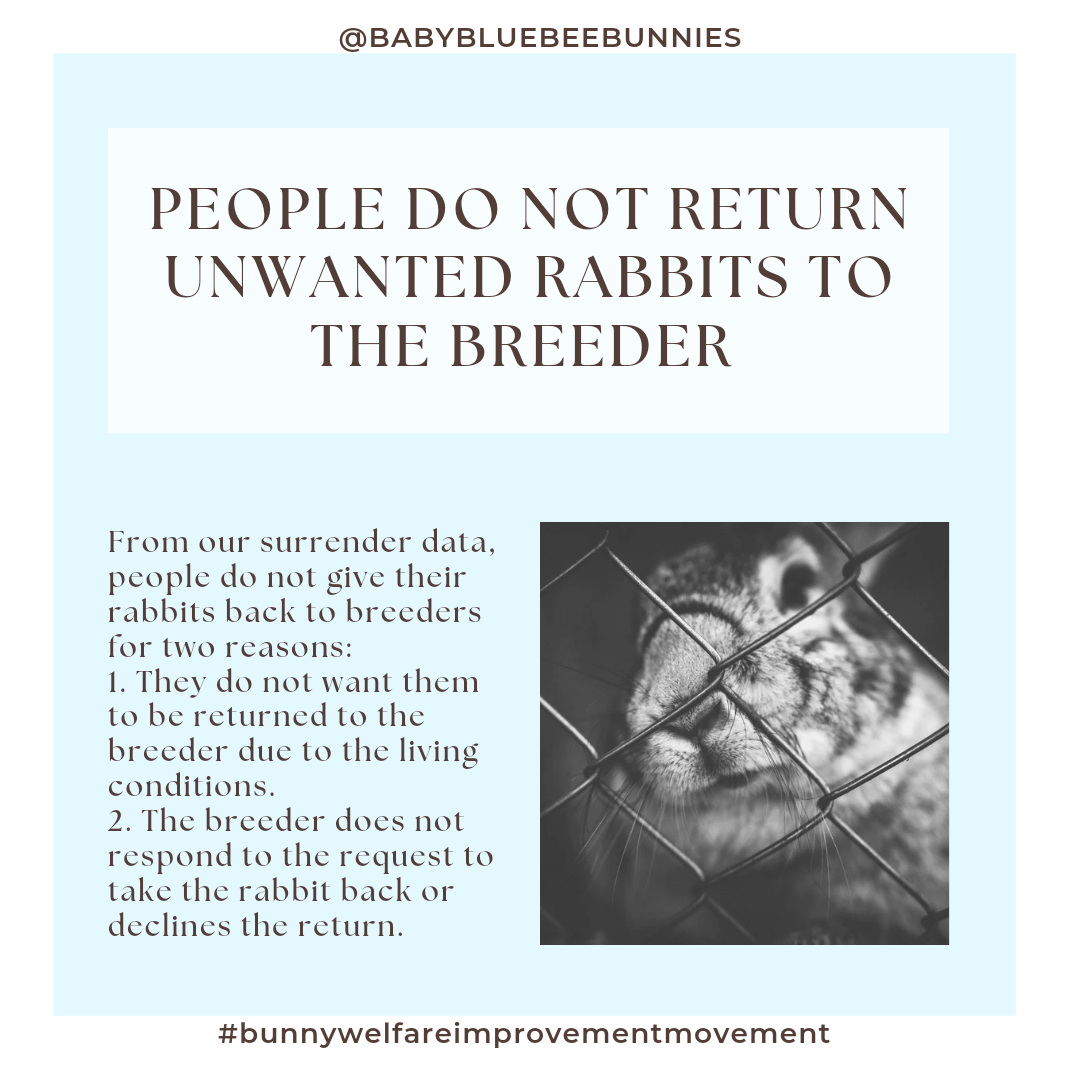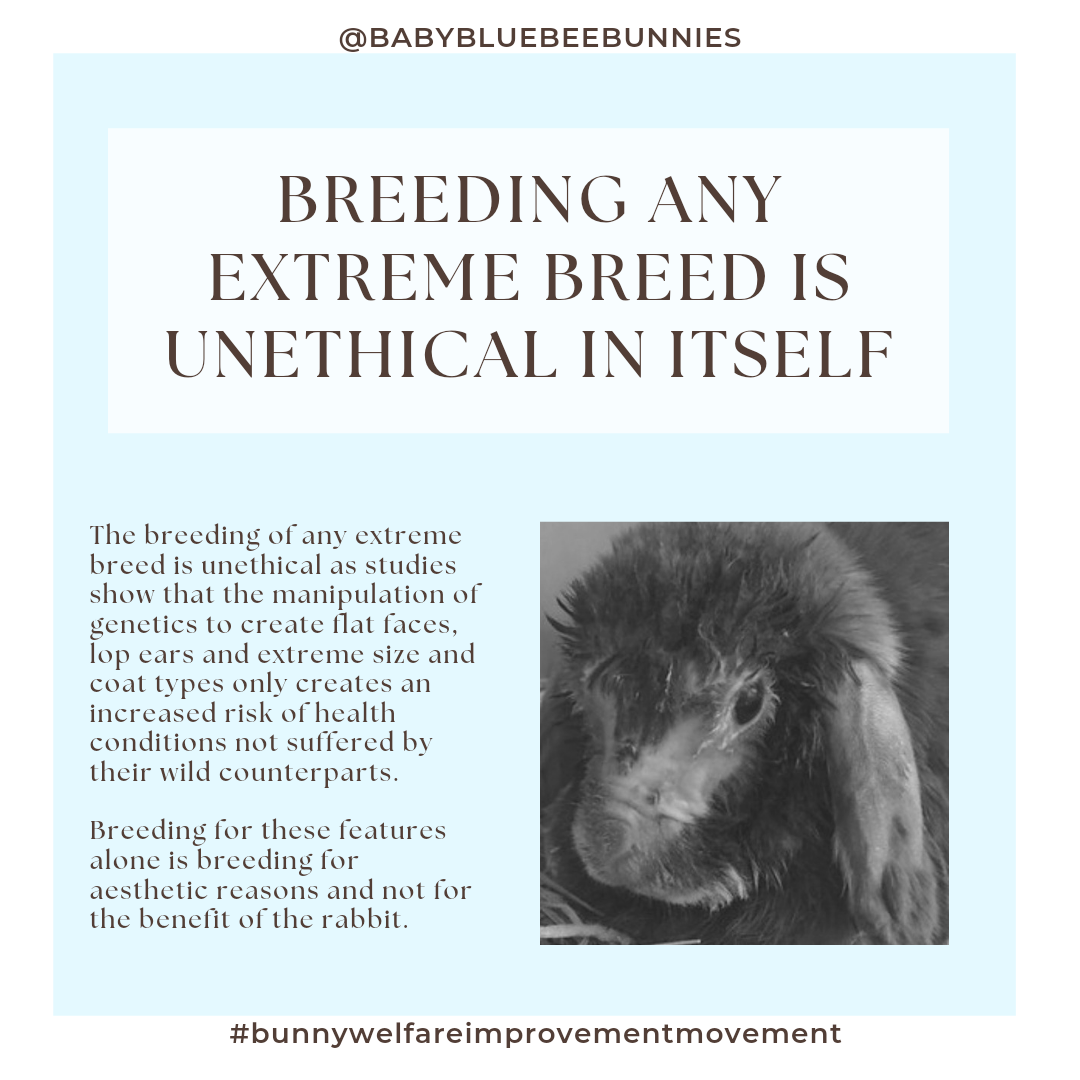The UK is facing a rabbit crisis and the numbers of rabbits being abandoned and given away is at an all time high.
According to UK rescue data - compared to dogs, far more rabbits are being dumped and given up each day. The numbers are now completely out of control for rescues and this is resulting in rabbits being euthanised, dumped at roadsides to die and being used for snake food and dog fight baiting.
According to the PDSA, the companion animal population during C*vid has increased by over 5 million in the UK.
Rabbits are notoriously easy to purchase - with hundreds of daily selling page adverts added daily and pet shops selling rabbits across the country. This also makes them easy to purchase on a whim and with no prior research. A survey done on 2000 rabbit care givers saw that 90% learned about rabbits after they took them home.
The reality is, for each rabbit you purchase from a breeder (this includes pet shops as breeders supply pet shops with 'stock'), 1 less rabbit has a safe rescue space to go to. The rabbit population goes up, rescues decline another intake and another rabbit gets dumped or used as snake food.
According to UK rescue data - compared to dogs, far more rabbits are being dumped and given up each day. The numbers are now completely out of control for rescues and this is resulting in rabbits being euthanised, dumped at roadsides to die and being used for snake food and dog fight baiting.
According to the PDSA, the companion animal population during C*vid has increased by over 5 million in the UK.
Rabbits are notoriously easy to purchase - with hundreds of daily selling page adverts added daily and pet shops selling rabbits across the country. This also makes them easy to purchase on a whim and with no prior research. A survey done on 2000 rabbit care givers saw that 90% learned about rabbits after they took them home.
The reality is, for each rabbit you purchase from a breeder (this includes pet shops as breeders supply pet shops with 'stock'), 1 less rabbit has a safe rescue space to go to. The rabbit population goes up, rescues decline another intake and another rabbit gets dumped or used as snake food.
As part of BABBA, we collect and report rescue data along with other rabbit rescues across the UK to give insights into the numbers of rabbits being given up and turned away rescue spaces due to lack of space. The data from 2022 so far already shows a 46% increase in rabbits being given up compared to last year. This is due to more rabbits being bred and sold as the majority of these rabbits are under 1 year old. 70% of rabbits being given up to rescues are under 1 year old.
|
The Scottish government legislation for rabbit welfare imposes the need for all rabbits to have all 5 of their essential welfare needs met. These include:
|
|
Rabbits can have litters between 4 and 12 babies. Finding homes for each of those babies may be easy, but finding responsible homes is almost impossible at the rate they are being produced. It takes us approximately 6 months to find the right, responsible homes for a litter of rabbits who come into the rescue. Yet breeders send them off at 8 weeks old to anyone who shows an interest for one.
Statistics show that 7 out of 10 rabbits sold are given up in the first year, the main reasons being children getting bored, allergies or aggression. The majority of rabbits ending up in rescues are under 1 year old for these reasons. The stats show that rabbits bought from a breeder are just as likely to end up in rescue as those purchased from a pet shop. Breeders simply do not have the ability to vet people purchasing rabbits from them, do home visits and follow up checks as they are likely an individual and do not have the time or resources to do this. The reality is, there are not enough responsible homes for the amount of rabbits being produced, which means bringing more rabbits into the world than there is ability to care correctly for always results in a rescue crisis. |
|
Rescue centers ask each surrender where the rabbit was bought from originally, to collect data. They also ask "why not return the rabbit to the breeder?" The two responses given are:
"I do not want to give the rabbit back there." "They would not take the rabbit back." Why is this? Breeders do not have the space to take back every rabbit they sell. People often do not want the rabbit to go back to living in a hutch as is the case at Rabbitry's. |
|
You will often hear breeders claiming to be "bettering the breed" or "improving the genetics" or even "breeding for health and temperament". This is simply not possible.
In order to do this, breeders would have to genetically test each rabbit they breed from, which there is not currently testing available for, nor the financial ability for rabbit breeders to do. When breeders sell "healthy" kits at 8 weeks old, they are often unaware of the health issues those rabbits develop as they grow as the person does not keep in touch with them. Dental malocclusion for example only become apparent as the rabbits jaw grows, around 14 - 20 weeks old. |
|
Studies show that breeds including dwarves and lops have an increased risk of health issues including dental disease, ear abscesses and gastric issues. Breeding rabbits further away from their wild counterparts only creates suffering for the rabbits. This is not debatable. Breeders are often unaware of the health issues their lops, dwarves and lionheads are facing, as rabbits are experts in hiding their illnesses and pain. To learn more about extreme breeding and the issues it causes for the rabbits, click here.
|
What if I'm a breeder and want to stop?
If you currently breed rabbits and want to stop, we are here to support you in this decision. We can give you the advice and support on what to do to wind down responsibly. We welcome you with open arms to reach out to us or any other welfare organisation to get support and assistance in closing your rabbitry.

